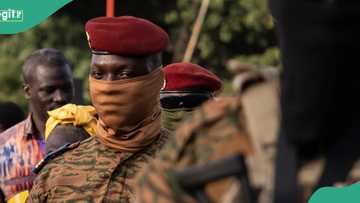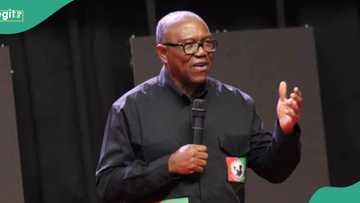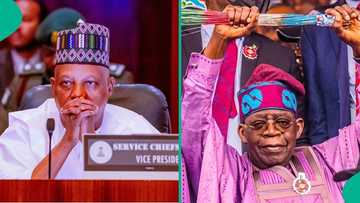“No Country Can Develop Under Democracy”: Burkina Faso President Says, Gives Reason
- President Ibrahim Traoré of Burkina Faso declared that the country is undergoing a "popular, progressive revolution" instead of functioning under a democratic system
- He criticised the notion that democracy is essential for development and highlighted the importance of revolution for societal transformation
- Traoré’s leadership has prioritised initiatives like rejecting Saudi Arabia’s offer to build mosques in favour of infrastructure projects that benefit the people
CHECK OUT: Education is Your Right! Don’t Let Social Norms Hold You Back. Learn Online with LEGIT. Enroll Now!
President Ibrahim Traoré of Burkina Faso stated that the nation is undergoing a “popular, progressive revolution” rather than operating under a democratic system.
Speaking at a flag-raising ceremony at the Koulouba Palace last week, Traoré emphasised the necessity of revolution for societal transformation, dismissing democracy as a prerequisite for development.
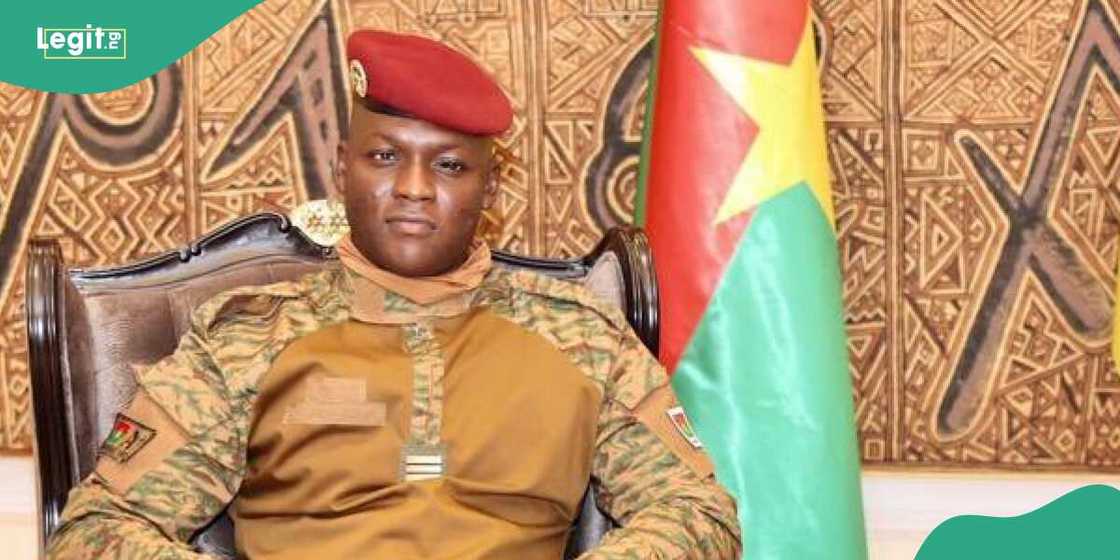
Source: Getty Images
According to PUNCH, he argued that no country has achieved development through democracy, describing it as merely a result rather than a driving force.
Commitment to revolutionary ideals
Traoré pledged to continue educating citizens about the principles of revolution, highlighting the importance of communication and understanding.
Since assuming office in September 2022 through a coup d’état, the 37-year-old leader has made notable decisions, including rejecting Saudi Arabia’s offer to build 200 mosques in favour of essential infrastructure projects.
His leadership reflects a focus on prioritising initiatives that directly benefit the people of Burkina Faso.
Critique of democracy and vision for development
Traoré criticised the notion that democracy ensures progress, calling it a “false” belief.
He warned against libertinism, which he said leads to societal disorder, and reiterated his commitment to revolutionary governance. His stance depicted a shift in Burkina Faso’s political approach, aiming to redefine development through revolutionary ideals rather than traditional democratic frameworks.
About Ibrahim Traore
Captain Ibrahim Traoré is the interim President of Burkina Faso, having assumed office in September 2022 following a coup d’état that ousted interim President Paul-Henri Damiba. At 37 years old, he is one of the youngest serving leaders globally.
Traoré advocates for a "popular, progressive revolution" over democratic governance, arguing that revolution is essential for societal transformation and development. His leadership has been marked by bold decisions, including rejecting Saudi Arabia’s offer to build mosques in favour of infrastructure projects to benefit citizens directly.
Traoré’s vision focuses on redefining governance and prioritising initiatives that address the needs of the Burkinabé people.
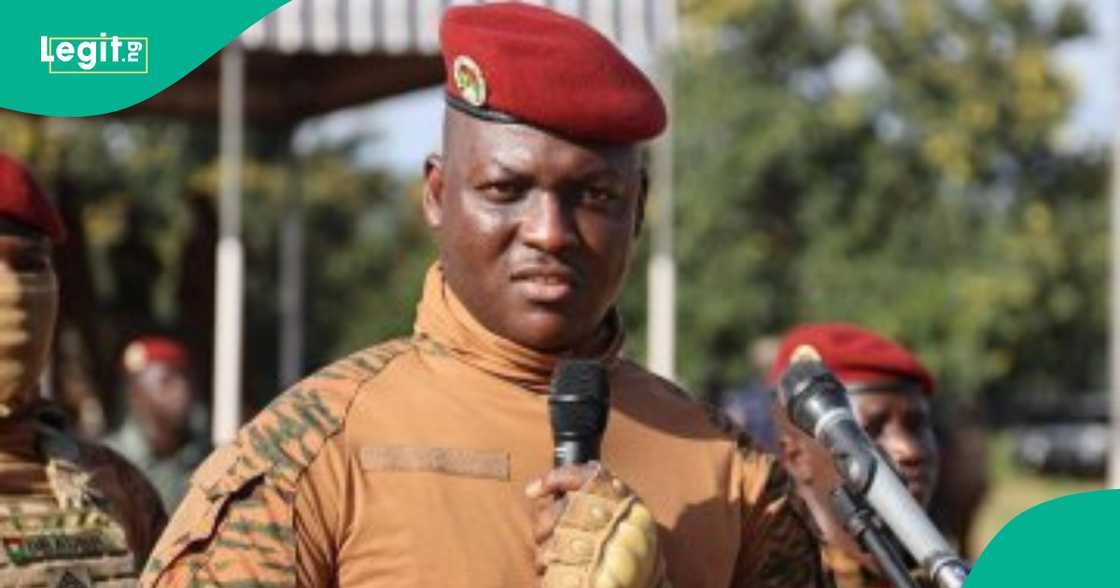
Source: Twitter
About Burkina Faso
Burkina Faso is a landlocked country in West Africa, bordered by six nations, including Mali and Ghana. Formerly known as Upper Volta, it was renamed in 1984 to reflect its identity, meaning "Land of Honest People" in the indigenous Mossi and Dioula languages.
Its capital, Ouagadougou, serves as the cultural and administrative centre. With a population of over 22 million, the country is home to diverse ethnic groups and traditions. Agriculture is the backbone of its economy, employing the majority of its people.
Burkina Faso faces challenges such as political instability and security concerns, but it remains rich in cultural heritage and resilience.
Burkina Faso announces dumping ECOWAS
Legit.ng earlier reported that Mali, Burkina Faso, and Niger Republic will officially cease to be members of the Economic Community of West African States (ECOWAS) from January 29, 2025.
This announcement was made by Alieu Touray, president of the ECOWAS commission, during the 66th ordinary session of heads of state and governments in Abuja, Nigeria's capital city.
The decision follows the three countries' notification of their intent to withdraw from ECOWAS. The withdrawal process, which includes a transitional period, is expected to be finalised by July 29, 2025.
PAY ATTENTION: Сheck out news that is picked exactly for YOU ➡️ find the “Recommended for you” block on the home page and enjoy!
Source: Legit.ng


